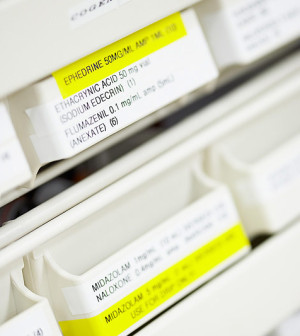- Could Your Grocery Store Meat Be Causing Recurring UTIs?
- Are You Making This Expensive Thermostat Error This Winter?
- Recognizing the Signs of Hypothyroidism
- 10 Strategies to Overcome Insomnia
- Could Artificial Sweeteners Be Aging the Brain Faster?
- Techniques for Soothing Your Nervous System
- Does the Water in Your House Smell Funny? Here’s Why
- Can a Daily Dose of Apple Cider Vinegar Actually Aid Weight Loss?
- 6 Health Beverages That Can Actually Spike Your Blood Sugar
- Treatment Options for Social Anxiety Disorder
Breath Test for Illegal Drugs Instead of Urine Analysis?


Scientists report they’ve developed a breath drug test that offers an alternative to urine testing.
Urine analysis is the most common way to test people for illegal drug use. But critics regard this approach as inconvenient and a violation of privacy, says the team that developed the breath test.
The new approach analyzes exhaled breath using a highly sensitive method called liquid chromatography-mass spectrometry. The researchers say it detects amphetamines, methamphetamines, marijuana, cocaine and heroin.
The study appears in the March 15 issue of Journal of Chromatography B.
The underlying mechanism in exhaled breath drug testing is believed to be the formation of aerosol particles from the breathing process, the researchers explained.
“These aerosol particles may become contaminated with drugs present in the body, which enables drugs to be highlighted,” lead researcher Olof Beck, a professor at the Karolinska Institute in Sweden, said in a journal news release.
“A simple collection device is currently available which selectively collects the micrometer aerosol particles on a filter and enables further laboratory investigation of possible drug content,” he explained.
Beck said the breath test may prove useful in many situations, such as roadside checks to determine if drivers are under the influence of drugs, at accident scenes, in the workplace and in the criminal justice system. It could also confirm if patients are taking prescribed medications, he said.
More information
Visit the National Institute on Drug Abuse for more on drug testing.
Source: HealthDay
Copyright © 2026 HealthDay. All rights reserved.










